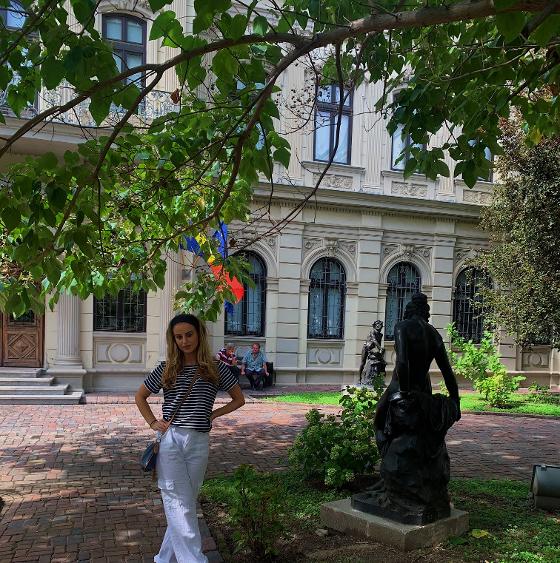ECO_CARE meets Juliana Hayden
By: Juliana Hayden
Pdf: here
- Can you briefly tell us about your research journey?
I stumbled upon the subject of water governance through my background in Global Health. I formerly studied loneliness as a global health crisis, in particular, how the condition of loneliness serves as an independent risk factor for mental and physical health across cultures. On the surface, loneliness and water governance as research topics may seem to be leagues apart. However, both topics require delving into behaviour change, environmental risk factors, and exploring comprehensive, multidisciplinary solutions that are appropriate for many different actors. In both areas, the researcher must place an emphasis on problem analysis from multiple angles (socioeconomic, environmental, political, legislative, and health) rather than assume a singular root cause and corrective course of action.
- What research topic are you most passionate about right now?
Through working closely with Professors Poto (NORWAY/ITALY), Panieri (NORWAY/ITALY), and Parola (BRAZIL/ITALY) I have become passionate about bridging the knowledge gaps between science, policy, and climate-vulnerable communities so as to increase participation in environmental decision making among all interested parties. The entire team and I have become especially excited about the potential to use digitalization to strengthen knowledge sharing on the status of targeted marine environments and increase avenues for cooperation from remote locations, including the High Arctic and the Northern Amazon!
- What are the areas/topics/issues in your domain of expertise that need to be explored in the years to come?
Over the course of the past three decades the concept of participation, i.e. a rights-based approach to environmental matters, has made a significant impact in international environmental law. Three major milestones, The Rio Declaration (1992), Århus Convention (1998) and Escazú Agreement (2018), established access rights for the public and included the voices of non-actors such as NGOs and vulnerable populations in their drafting. In theory, the international community should be well on its way to promoting good, inclusive, environmental governance.
Yet in practice, this progress has been repeatedly undermined by the failure of governments to adequately implement the principles and conventions of international governance. From a dearth of domestic legislation to carry out doctrine (Rio, 1992), to a non-existent independent international monitoring review (Åarhus, 1998), and the alarming reality that all of these agreements have continuously failed to compel the support of the finance ministries, treasuries and/or major players of the raw material sector of many governments, the agreements’ intended impacts are simply falling short.
In the years to come there needs to be major investigation into how we can assuage attrition from environmental governance, in particular water governance legislation from governments and relevant private sectors. We have to critically appraise how decision-making processes can operate more inclusively to integrate the concerns of all sectors. That research journey may sound opaque or like policy wonk jargon, but it boils down to a matter of establishing open, transparent, lines of communication between local, regional, and international players. The basics of how to feasibly improve communications between so many actors with so many conflicting motives are what multidisciplinary researchers like myself, and the ECO_CARE team, will be trying to work out in our upcoming projects.
- What is your experience with project applications?
ECO_CARE has been extremely focused on sourcing national and international funding to bring our cross-disciplinary projects to life. I’ve often undertaken project positioning on grant writing, i.e. lots of writing and editing. Through grant writing with such an experienced and multi-disciplinary team I’ve learned a lot about project development and management, just how much effective coordination matters (usually in international time zones), and the utmost importance of clarity in communicating all aspects of a project. No detail is too small to leave out.
Pursuing funding is par for the course in academia. I have discovered that knowing the ins and outs of funding opportunities and procedures, particularly in the case of research and innovation (R&I) projects, is critical to network capacity building. Ultimately, building competitive proposals takes a great deal of clear communication, collaboration, and examining past successful projects to identify best practices.

Juliana Hayden, ECO_CARE Team Member, PhD Student in Law at the University of Turin, Italy.
***
This post may be cited as: Juliana Hayden, ECO_CARE meets Juliana Hayden (October 1st, 2022), online: here